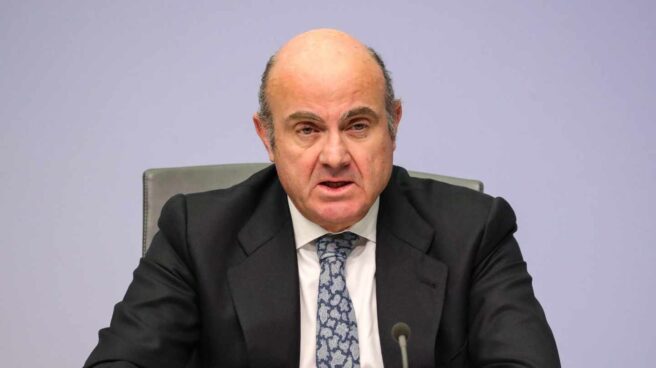

This was stated by ECB Vice President Luis de Guindos.
Luis de Guindos, vice president of the European Central Bank (ECB), thinks it likely that the eurozone will enter a technical recession in the coming quarters, although he hopes that the fall in GDP will not be particularly intense, while he foresees that only in 2023 inflation will start to decline, suggesting a complex picture for the central bank.
“It is possible that in the coming quarters the eurozone will enter a technical recession. We believe that this is possible, but such a situation would not mean an overly intense recession.”, – he said in the act of the General Council of Economists of Spain (CGE).
Similarly, after a string of negative inflation surprises since 2019, the ECB forecast assumes snowpack levels will remain at about current levels until the end of 2022 to start slowing down in 2023, due in part to base effects and depending on potential negative surprises. .
In this sense, Guindos pointed out that while inflation expectations are tied to markets, it differs slightly between companies and families, acknowledging that in 2023 the inflation rate will still be clearly above the definition of stability.
Thus, the ECB Vice President recalled that, given the complexity of the current scenario, the organization will act from now on, meeting after meeting, depending on the development of data. “There will be more rate increases, but their number and amount will depend on the data,” he added.
ECB opinion on bank tax
On the other hand, the European Central Bank (ECB) hopes to publish “in the coming days or weeks” its opinion on the rate that the Spanish government intends to impose on banks, which was confirmed by the vice president of the institution, Luis. de Guindos.
“I have the impression that in the coming days or at most a week, the ECB will publicly express its opinion on the rate being discussed in the Spanish Parliament,” Guindos said during his speech at the act of the General Council of Economists of Spain (CGE). , recalling that the opinion of the Central Bank “are not mandatory”.
On previous occasions, and without evaluating the Spanish case in particular, the ECB Vice President has always recalled the central bank’s defensive position that such measures do not make it difficult to provide credit or tighten financing conditions, nor undermine the solvency of the industry.
Source: El Independiente